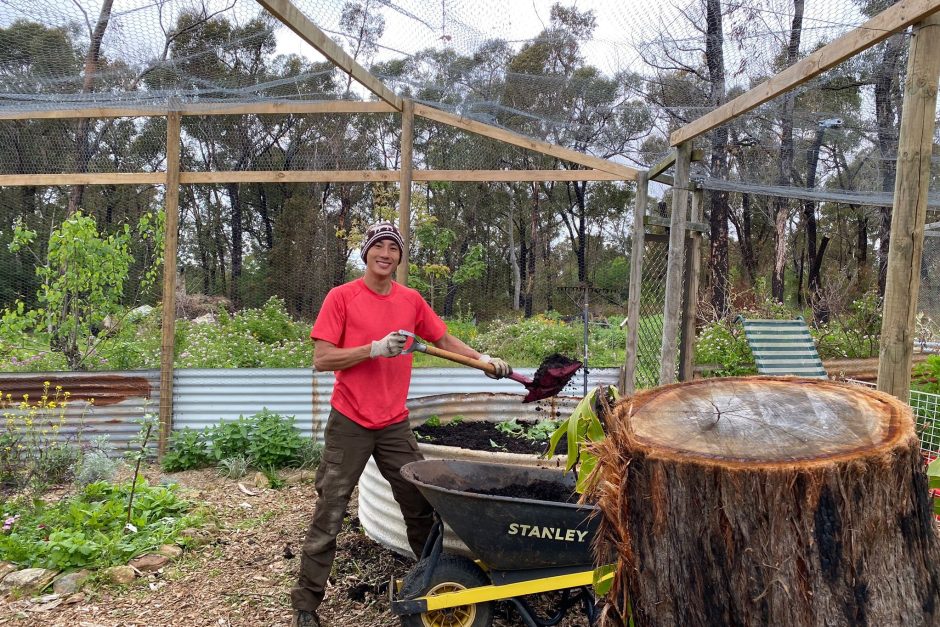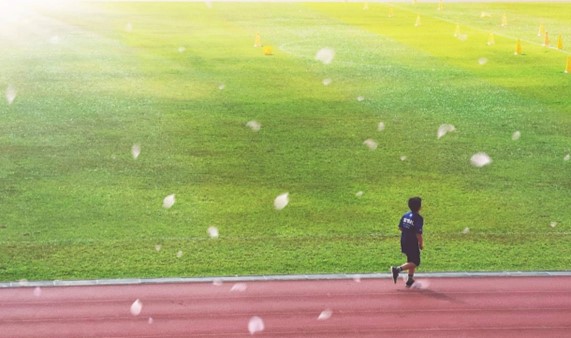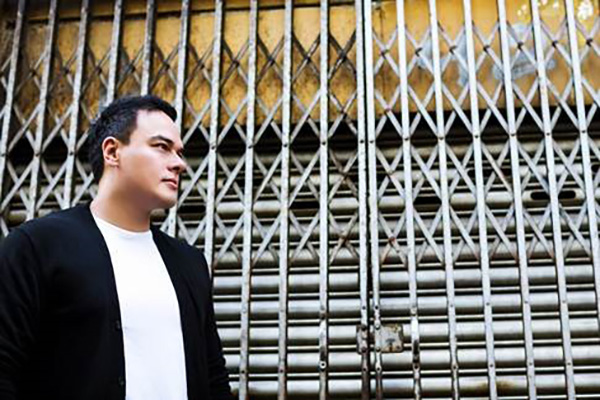On the rooftop of a multistorey carpark in Serangoon North, a patch of green regularly draws nearby residents who need something in a hurry for their dining table. The community garden, called NUTOPIA, boasts crops such as grapes, leafy vegetables and rice.
Set up at the cost of $3,000 from community donations, the 70sqm garden is not only productive but also appealing to all ages. Young children enjoy its whimsical concepts and can learn through the illustrative signages. The seniors take walks there to enjoy the burst of colour from the flowers.
Mr Christopher Leow, who started this passion project in 2021, explains, “With Covid-19 causing food shortages, I wanted to grow food to supply the community for free.”
The garden is run by a core team of four, including Mr Leow.
His urban farming consultancy helps transform spaces in land-scarce Singapore into viable agricultural plots. Many would also recognise him as the affable host of Growing Wild, a Channel NewsAsia documentary series which showcases his farming adventures.
It’s a blooming career filled with colourful stories, but behind it lies a bumpy journey of self-discovery.
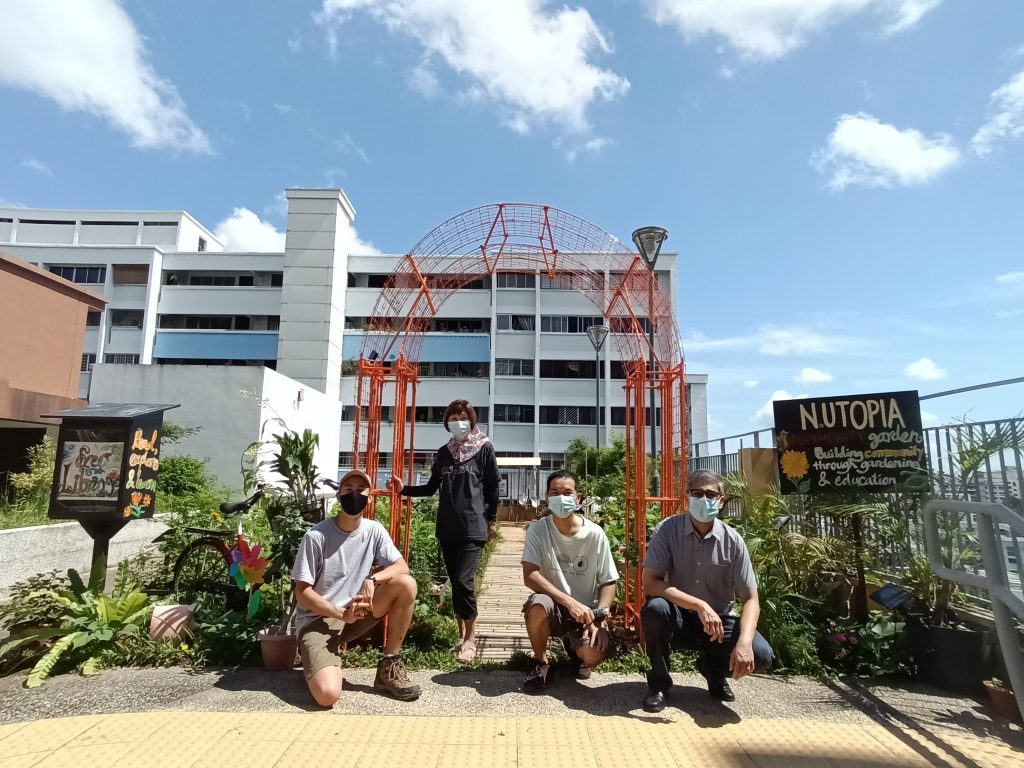
A yen to work with his hands
When he was a student at St Andrew’s Secondary School, Mr Leow excelled in Art as well as Design & Technology (D&T). He enjoyed the creative process of making things with his hands.
“It was very gratifying being able to produce useful yet beautiful products or artwork,” he says.
He envisioned pursuing something along those lines after his O Levels.
But his parents had different ideas. “They wanted me to have a stable job and thought engineering was good,” he says, and heeded their advice that Singapore Polytechnic’s Diploma in Aeronautical Engineering “had better prospects”.
He furthered his studies in Australia in the same field and continued to plod through his classes.
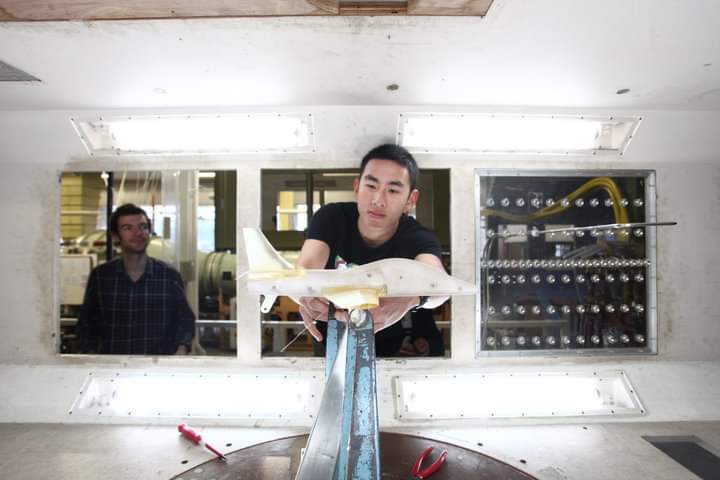
“Engineering was a lot of computers and maths, so it was not exactly where I was strongest,” he explains. “I was really quite unhappy and stressed. I struggled throughout the whole period there.”
To distract himself and to earn some pocket money, he started bussing tables part-time at cafés, and soon found the experience of feeding people to be rewarding.
With the money he saved, he started a café from his hostel, serving coffee and milk-based drinks dressed with fancy latte art which he learnt by watching YouTube tutorials and attending barista courses.
By the time he graduated and started a café in Singapore, he couldn’t see himself doing anything related to engineering. He eventually closed the café but only out of exhaustion. It was time to seek out something sustainable, but which still nourished the people around him.
Finding purpose in food security
When he took time out to travel, he visited countries like India and the United States and volunteered with local farmers and learned from street cooks.
During a two-month stay in Australia, he met a couple who grew their own food, and saw how independent they were of supermarkets and other external suppliers, where prices and stocks lay outside of their control.
“When I saw that, it unlocked something in me and opened my eyes to self-sufficiency as a possibility,” Mr Leow recalls. “I wanted to pursue that idea for Singapore.”
Upon returning home, he read for a diploma in Culinary Arts and Management to beef up on his knowledge of food and food preparation. He then volunteered with a community of urban farmers who set up farms on rooftops. One such farm he worked on sits atop *Scape, a building in Orchard Link; it grows tomatoes, vegetables and herbs. In 2016, he joined Edible Garden City, an urban farming social enterprise, to help set up a circular farm – the farm recycles “waste” such as coffee grounds to grow commercial crops like mushrooms. It was part of a government pilot of a community farming model, and he was excited about “starting this in Singapore to make a difference”.
Gardening needs engineering, tech and more
When Mr Leow talks about any aspect of farming, he lights up.
At 37, he has already published a 199-page memoir, titled The Freestyle Farmer. It is filled with personal stories topped with practical tips for gardening and farming. He sees his mission as educating people about growing their own food and advocating for food self-sufficiency.
Above all, he is working with his hands.
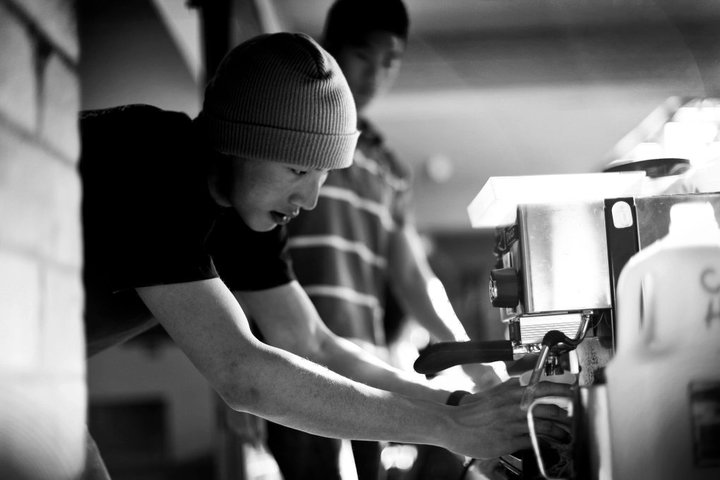
Not that all his lessons in engineering have been in vain, he maintains: “Whether or not I enjoyed studying it, it is all relevant and I apply it in my work today.”
To set up a garden, for instance, he taps on his engineering and even his D&T knowhow, “to automate certain processes and make things more efficient”. He programmes tasks like the watering of plants, and installs sensors to collect data on soil conditions, sun exposure, and rainfall.
Like the circular farm he helped to build, nothing he has learned goes to waste, and everything has its place.
To students who are still finding their way to their goals and interests, his advice is simple: “It is okay to not know. Just be open-minded, explore, and you will figure out what resonates with you.
“If you never have the chance to be exposed to different things, you wouldn’t even know what exists out there.”



